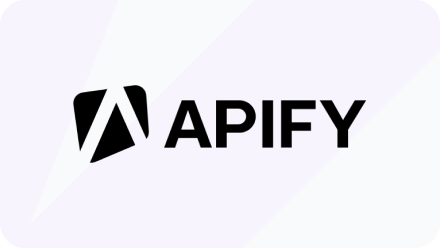Seamless Integration: Connecting Residential Proxies to Apify for Enhanced Web Scraping

Apify is a robust platform designed to streamline web scraping and automation tasks, empowering users to extract valuable data from the internet efficiently. While Apify offers powerful tools, integrating high-quality residential proxies is crucial for achieving optimal performance, bypassing sophisticated anti-scraping measures, and ensuring the reliability of your data collection efforts.
This guide will walk you through the process of connecting residential proxies to your Apify projects, focusing on best practices to maximize your scraping success and maintain anonymity.
Why Residential Proxies are Essential for Apify Users
Web scraping often involves interacting with websites that employ various techniques to detect and block automated requests. These measures can include IP blacklisting, CAPTCHAs, and rate limiting. Datacenter proxies, while fast, are easily identifiable and often fall victim to these defenses. Residential proxies, on the other hand, offer a significant advantage:
•Authenticity: Residential IPs are assigned by Internet Service Providers (ISPs) to real homes and mobile devices, making your requests appear as legitimate user traffic. This significantly reduces the likelihood of detection and blocking.
•Geographical Diversity: Residential proxy networks span across numerous locations worldwide, enabling you to access geo-restricted content and perform localized data collection with precision.
•High Success Rates: Due to their authentic nature, residential proxies boast higher success rates in bypassing anti-scraping mechanisms, ensuring consistent data flow.
•Anonymity and Security: By routing your requests through residential IPs, your real IP address remains concealed, protecting your identity and enhancing the security of your scraping operations.
Step-by-Step Guide: Integrating Residential Proxies with Apify
Connecting your residential proxies to Apify is a straightforward process that can be configured within your Actor settings. Here’s a detailed breakdown:
1. Accessing Your Apify Account and Actor Settings
First, log in to your Apify account. Once logged in, navigate to the Actor that you intend to use for your web scraping project. You can find your Actors in the 'Actors' section of your Apify Console.
2. Locating Proxy Configuration
Within your chosen Actor's settings, you will need to find the 'Proxy and browser configuration' section. This section typically appears under the 'Input and options' tab. Expand this section to reveal the proxy settings.
3. Selecting Custom Proxies
By default, Apify might use its own proxy solution. To integrate your residential proxies, you'll need to select the 'Custom proxies' option. This will enable you to input the details of your third-party residential proxy service.
4. Entering Proxy Credentials
This is where you'll input the connection details for your residential proxy. Most residential proxy providers, including DataImpulse, will provide you with the following information:
•Host: The server address of the proxy.
•Port: The port number for the proxy connection.
•Username: Your unique username for authenticating with the proxy service.
•Password: Your unique password for authenticating with the proxy service.
For example, if you are using DataImpulse residential proxies, the details would typically look like this:
Host: gw.dataimpulse.com
5. Configuring Geo-Targeting (Optional but Recommended)
Many residential proxy providers offer geo-targeting capabilities, allowing you to select specific countries, states, or even cities for your proxy IPs. If your scraping task requires targeting specific geographical regions, you can often specify this within the proxy configuration by adding parameters to the username or host, depending on your provider's documentation. For instance, to target US residential IPs with DataImpulse, you might include a country code in the username or use a specific host provided for US proxies.
6. Saving and Testing Your Configuration
After entering all the necessary proxy details, click on 'Save & Start' to apply the changes and initiate your Actor. It's highly recommended to perform a test run to ensure that your proxies are correctly integrated and functioning as expected. You can monitor the Actor's logs to verify that requests are being routed through your residential proxies.
Best Practices for Using Residential Proxies with Apify
To maximize the effectiveness of your residential proxies and avoid potential issues, consider these best practices:
•Choose a Reputable Provider: Select a residential proxy provider known for its ethical IP sourcing, large IP pool, and reliable uptime. Providers like DataImpulse offer competitive pricing and robust features.
•Rotate IPs Strategically: While residential proxies offer high anonymity, continuous requests from a single IP can still raise flags. Implement intelligent IP rotation strategies, either by configuring your proxy provider's settings or by using Apify's built-in proxy management features, to ensure a fresh IP for each request or session.
•Utilize Sticky Sessions When Needed: For tasks that require maintaining a consistent session (e.g., logging into a website), use sticky sessions. This ensures that your requests for a certain period are routed through the same IP address.
•Monitor Proxy Performance: Regularly monitor the performance of your proxies, including success rates and response times. This helps identify and address any issues promptly.
•Respect Website Policies: Always adhere to the terms of service of the websites you are scraping. Ethical scraping practices are crucial for sustainable data collection.
Conclusion
Integrating residential proxies with Apify is a powerful strategy for enhancing your web scraping capabilities. By leveraging the authenticity and geographical diversity of residential IPs, you can overcome anti-scraping measures, access a wider range of data, and ensure the reliability of your automated tasks. Following the steps and best practices outlined in this guide will enable you to unlock the full potential of Apify for your data extraction needs, making your scraping operations more efficient, anonymous, and successful.
